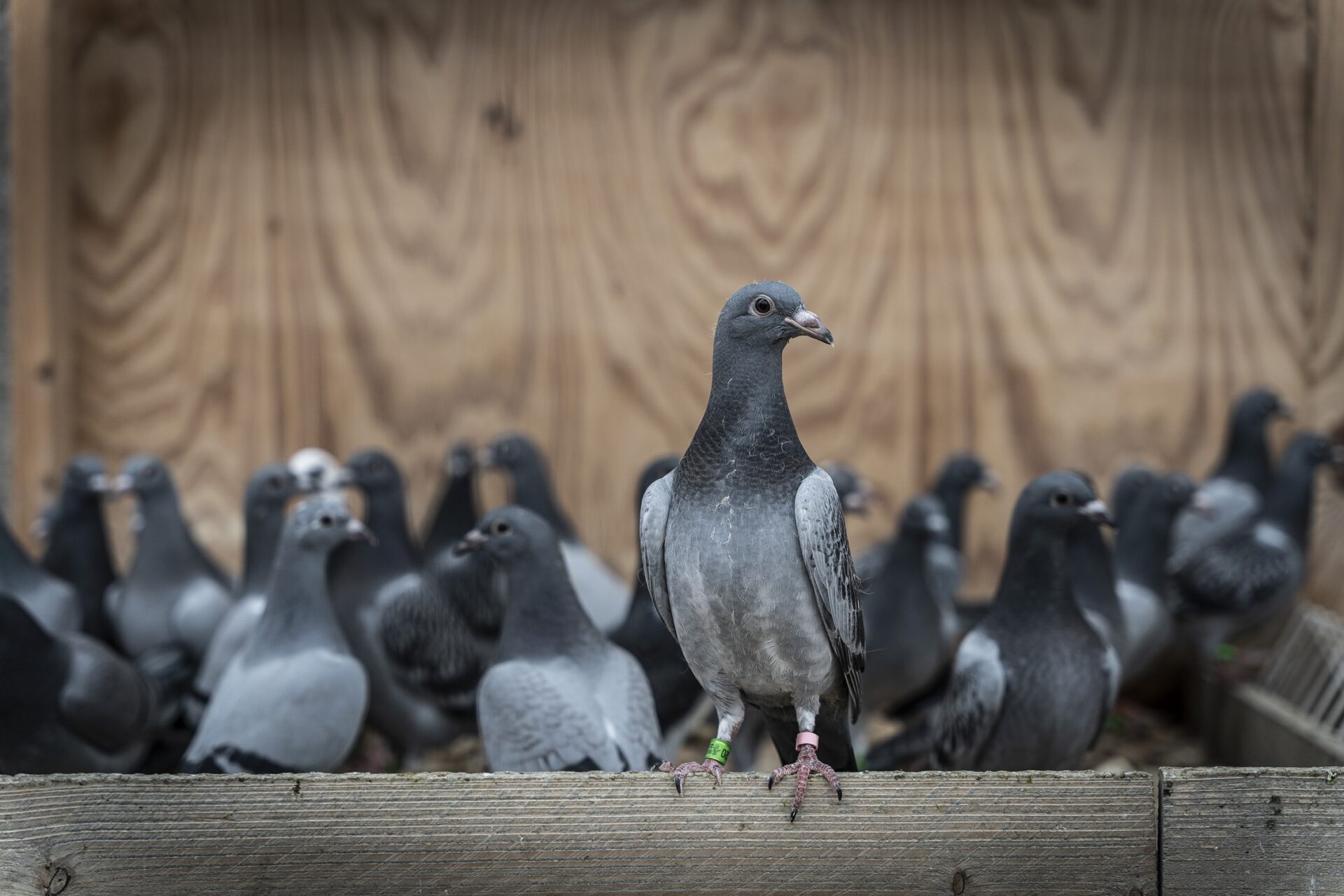When Jelle Roziers was around 12 years old, his teacher asked the class what they wanted to be when they grew up. Other children rattled off pedestrian responses: police officer, firefighter, lawyer. For the young Flemish boy, there was only one answer. “Professional pigeon guy,” Roziers, now 39, recalled recently with a chuckle.
Back then, making a living from pigeon racing, a sport born in modern form in Belgium some 200 years ago, wasn’t possible – even for someone like Roziers who came from a long line of duivenfokkers or duivenmelkers (pigeon breeders, to use the Dutch).
But the niche world of pigeon sport has changed in the past 20 years, thanks to the rise of online auctions open to wealthy fanciers all around the world. Prices for Belgium’s internationally coveted homing pigeons have taken flight, a trend underlined by the record-smashing, headline-grabbing sale of prize hen New Kim for €1.6 million in 2020.
More and more Belgian fanciers have turned their hobby into a career. Roziers, a boisterous and straight-talking character, is one of them. Since 2011, he has devoted himself full-time to breeding, training and racing homing pigeons, he explains at his kitchen table in a sleepy hamlet east of Antwerp. It is a job-cum-lifestyle that entails almost dawn-to-dusk duties in peak season.
“The alarm is always at six,” he says. “I start to clean already. Then you give them fresh water, the breeders, the racers. You start to feed the birds, you start the loft training.” Before you know it, it’s noon, and then six o’clock. Winter is more relaxed, but summer holidays are out of the question. “I’m pretty much always here,” he says.
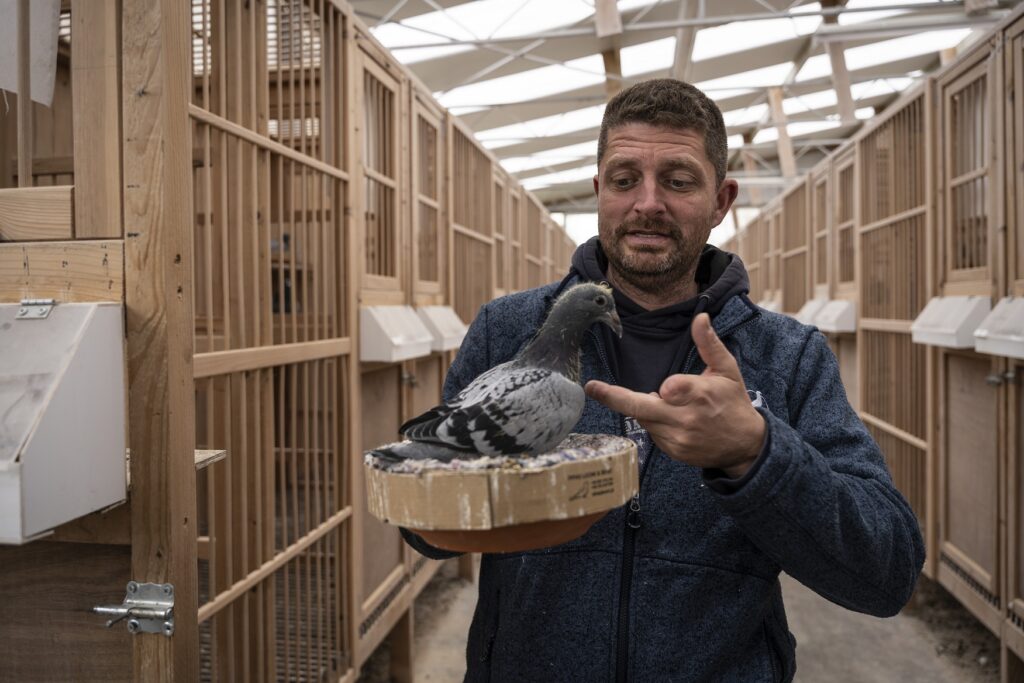
Roziers in his loft
In a cluster of buildings in his garden, Roziers keeps around 400 birds, including Seven Junior, his top breeder. A distinctive white bird with touches of grey in his plumage, Seven Junior counts three national aces (a prestigious award) among his progeny. Someone offered €200,000 to buy him in the past, according to Roziers.
As the fancier gives a tour of his impressive operation, a flock of pigeons weave endless circles in the sky overhead, making a satisfying swooshing sound as they pass. They’re training, he explains.
Homing instincts
Racing season is underway. Almost every weekend between May and September, competing birds of a given age class are taken to a starting line, sometimes more than 1,000km away from home, and released simultaneously. They must then make their way back to their respective roosts (known as lofts), all travelling slightly different distances. The bird who clocks the fastest metre-per-minute speed on its foot tag wins.
The sport relies on a pigeon’s homing instinct, a mysterious ability to find home from unfamiliar places that scientists still don’t fully understand. Experts have posited that pigeons use an internal magnetic compass, visual cues, the sun’s arc, infrasound (low-frequency sounds) and even smell to navigate, but there is no definitive consensus. Many fanciers are drawn in by this enigma.
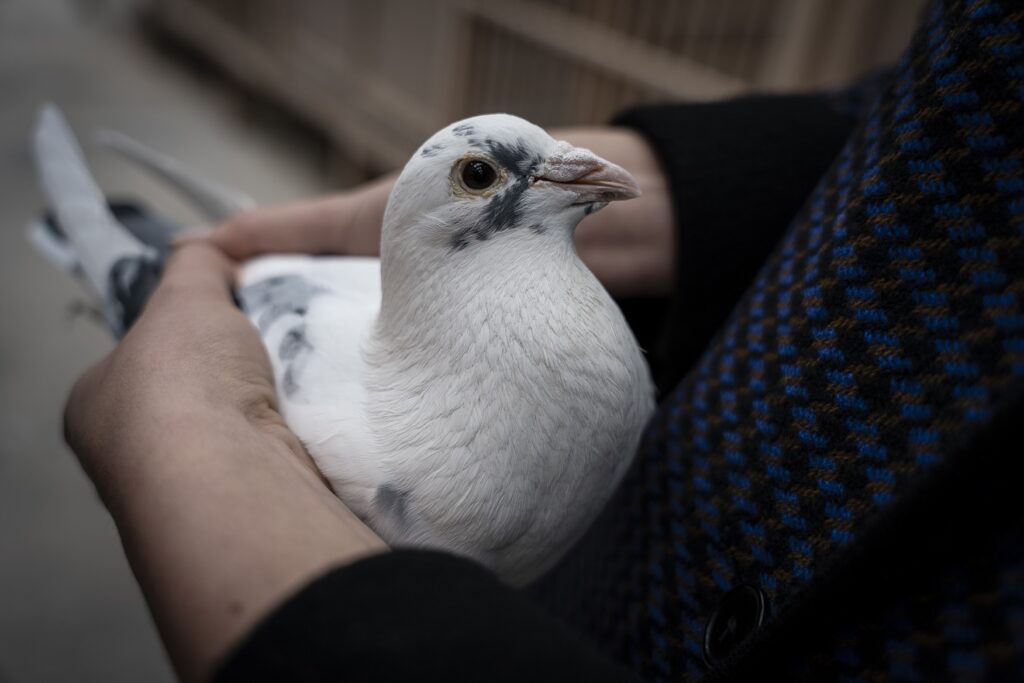
Roziers' bird seven junior
Weather conditions, particularly the wind, are normally a decisive factor in a bird’s victory. But it’s all about breeding and training, as Bart Geerinckx, one of top Belgium’s racers, explains at his loft in a village in Antwerp’s suburban sprawl.
“Pigeon sport is a little bit like cycling. You need lots of preparation,” Geerinckx says, speaking softly. “You must train them well and then race every week.” To build up birds’ stamina and navigation skills, a fancier drives them a little further away from home each week and lets them go.
Geerinckx, 39, has won countless races over the years. His current prize bird is Twinkle Star, who won first national ace in the long-distance, yearling category last year. Like many pigeon enthusiasts, Geerinckx learnt the sport from his father. He’s been pro for more than a decade.
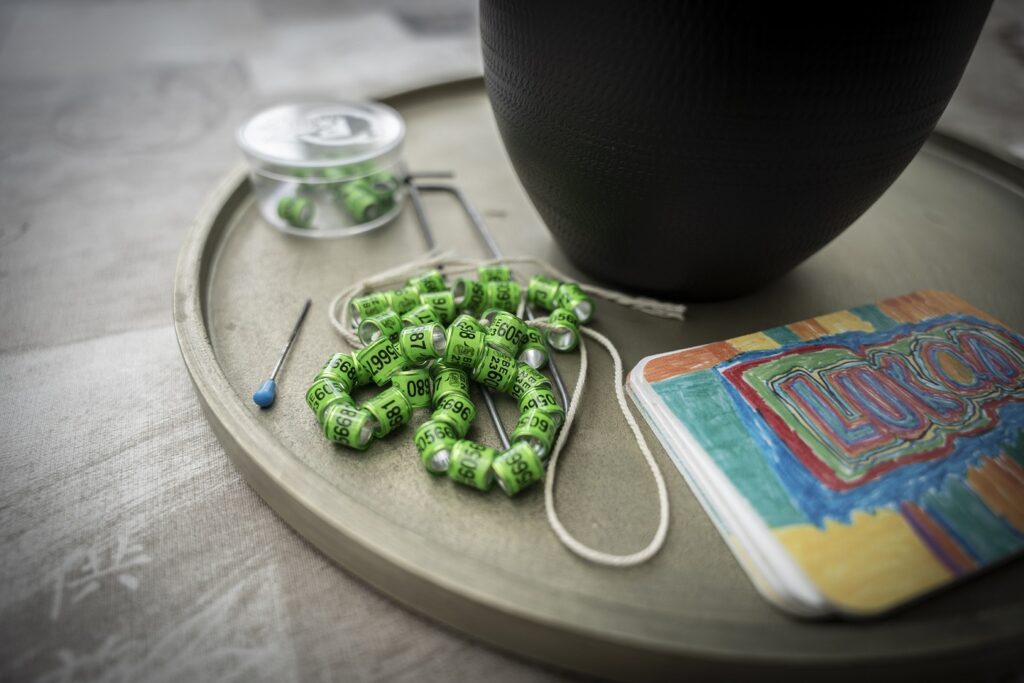
Racing pigeon tags at Bart Geerinckx house
While the races come with cash prizes, these days breeding is where the big money is at. When legendary Belgian fancier father-and-son duo Gaston and Kurt van de Wouwer sold off their prize collection in 2020 (including New Kim), they got close to €10 million.
That sale was handled by PIPA (Pigeon Paradise), an online racing pigeon auction site that claims to be the most exclusive in the world, founded in 2000 as a news portal. “The globalisation of pigeon sport, that’s thanks to the Internet,” says Ivan Willockx, a PIPA pigeon broker.
There were always some international sales, but the Internet turbo-charged things. “Instead of 100 or 200 people in your auction and you do it in a pub, you have 1,000, 10,000 or even 20,000 buyers behind their PCs,” Willockx notes.
Beer, chocolate, pigeons
On average, there are about 25-30 different nationalities bidding per auction, but the expensive birds - like New Kim - tend to go to Chinese buyers, according to the broker. Their new owners often keep them at lofts in Europe rather than shipping them overseas, Willockx adds.
Twenty years ago, there were no professional fanciers in Europe, the Willockx says (for many, it was more or less an excuse to go to the pub, he jokes). Now, he reckons there are up to 50 in Belgium.
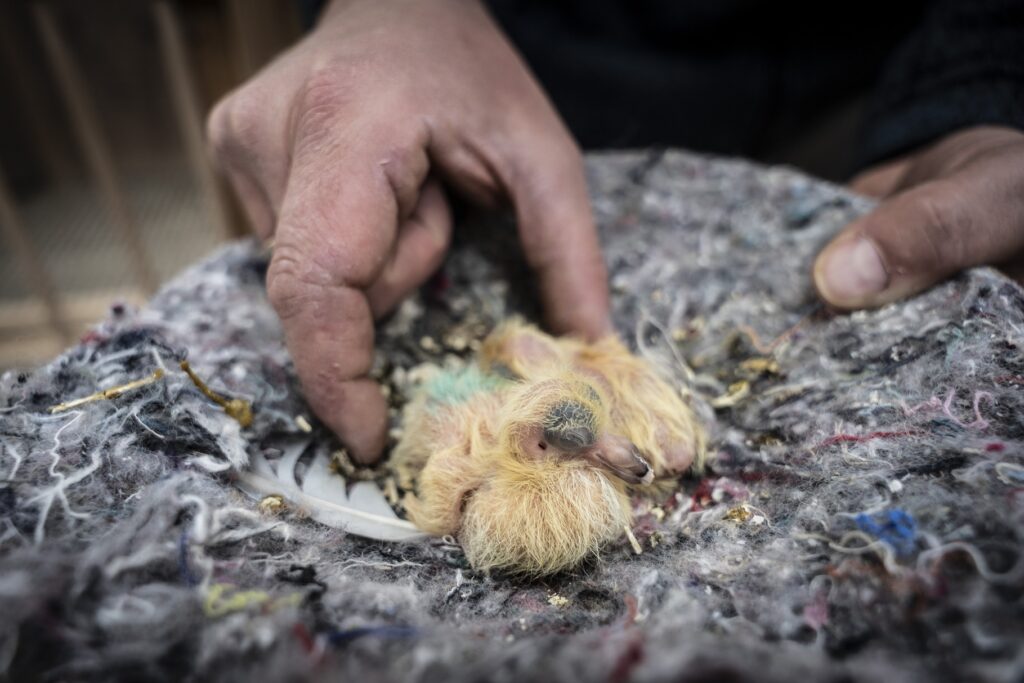
Roziers' baby pigeons
Pigeon racing has devotees all over Europe and the rest of the world, popular in China, Taiwan, India, Bangladesh, and the United States, to name but a few. Good pigeons are bred and sold everywhere, but Belgian birds remain the most sought-after.
“I call it an export product, like Belgian beer or chocolates,” Willockx says. The pastime has a long history here, with a high density of fanciers and plenty of tough competitions to put the birds through their paces.
As racer Geerinckx points out, like horses or dogs, it’s all about the pedigree, built up through generations of selective breeding. There’s no fixed secret to breeding a prize pigeon; the skill comes with years of experience.
Pigeon racing, at least for those at the top, nurtures cross-border relationships. Over the years, Roziers has worked with Canadian, Polish and Mexican fanciers.
In 2015, he went into business with a Chinese fancier. Xiang Jixiang, who still lives in China, buys top-quality birds; Roziers takes care of the loft and breeding. As part of their deal, the Belgian and his family live rent-free in a house owned by Xiang. It’s a smooth relationship, Roziers says. “We never had a fight about €500, €1,000. Never!”
Both Geerinckx and Roziers consider themselves lucky to do what they love, especially given that interest in the sport is actually on the decline in Belgium.
“I’m very happy I could do it,” Geerinckx says of his decision to go professional. “Now with this worldwide thing, it’s possible.”
The pigeon life isn’t for everyone, but it works for Roziers. “I'm here. I can do my hobby. I don't have to go to work,” he smiles boyishly. “I just do what I want to do.”

